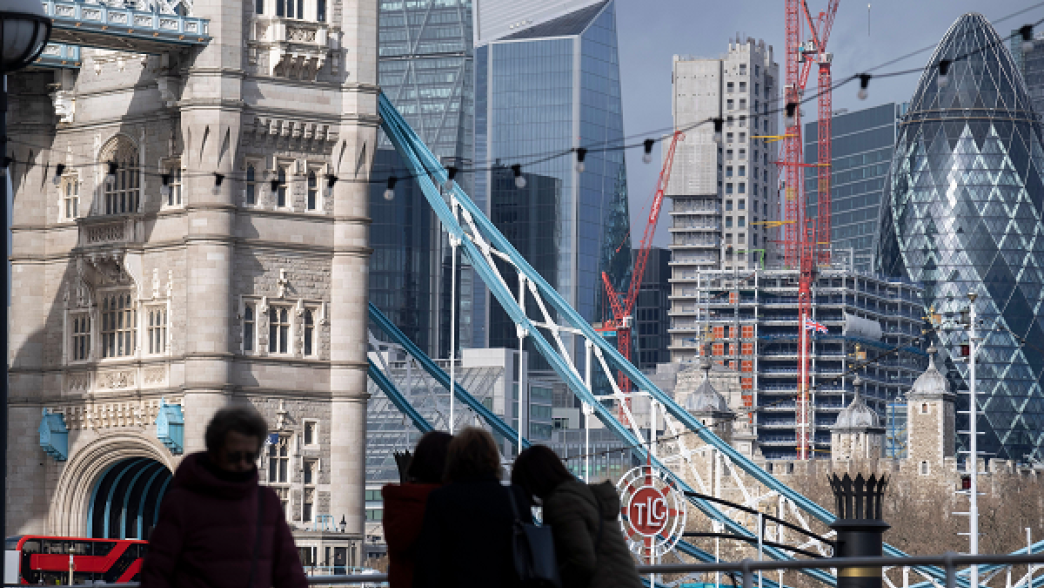Ukraine crisis: transparency of Russian money flows in the UK
Since the beginning of the most recent crisis in Ukraine, there has been a lot of focus in the press on illicit money flows to the UK.

What concerns have been raised over illicit flows of money in the UK?
Since the beginning of the most recent crisis in Ukraine, there has been a lot of focus in the press on illicit money flows to the UK – particularly through purchases of London properties. Transparency International “has identified at least £1.5 billion worth of UK property owned by Russians accused of financial crime or with links to the Kremlin. Most of this property is held by secretive offshore companies.”[1]
A Home Office report in 2020 found that “the UK continues to see a significant volume of Russian, or Russian-linked illicit finance channelled through the UK economy.”[2] The report found that the money is often invested in property, vehicles and donations to cultural institutions – functioning both as a way to store the funds and to improve the reputation of the investors. The Home Office concluded that “this poses a significant reputational risk for the UK as a global financial centre.”
What did the Intelligence and Security Committee’s Russia report say about Russian funds in the UK?
Parliament’s Intelligence and Security Committee (ISC) published a report in 2020 looking at the threats posed by Russia to the UK, examining the areas of cyber, disinformation and influence, and expatriates in the UK.[3] The report found that the UK’s openness to Russian investment “offered ideal mechanisms by which illicit finance could be recycled through what has been referred to as the London ‘laundromat’.” According to the ISC, “there are a lot of Russians with very close links to Putin who are well integrated into the UK business and social scene, and accepted because of their wealth.”
Is this a particular problem for the UK?
The ISC report found that “the UK has been viewed as a particularly favourable destination for Russian oligarchs and their money”, partly because Russians see “London’s strong capital and housing markets offering sound investment opportunities” and “the UK welcomed Russian money, and few questions – if any – were asked about the provenance of this considerable wealth.”
Is Russian money used to fund UK political parties?
Under party funding rules only those on the UK nationals electoral register can donate to UK political parties. Some donors have both Russian and UK nationality, and opposition parties have suggested that the Conservatives have raised between £1.9m and £2.3m from donors who have links to Russia since Boris Johnson became prime minister. [4] There is no implication that these donors made their money in illicit ways.
What are campaigners calling for?
Transparency campaigners, including Transparency International, have called for the UK to introduce a register of beneficial ownership of properties. This would set out who ultimately owns UK properties. The UK already has a public register of ownership of companies, which campaigners would like to see strengthened, and a private register of ownership of trusts. Campaigners are also calling for greater transparency into property and companies in UK overseas territories and crown dependencies.
What is the government doing about it?
As well as extensive sanctions on Russian entities and individuals as well as other economic targets, the government is taking steps to tackle illicit financial flows in the UK. Home secretary Priti Patel announced that so-called “golden visas”, also known as Tier 1 investor visas, would no longer be available.[5]
In 2018, the government established Unexplained Wealth Orders (UWOs), which allow property to be confiscated without a criminal conviction. The ISC noted that the efficacy of UWOs has been called into question given the low number issued, and the amount of potentially illicit funds still being invested in the UK. As of January 2022, only nine UWOs had been made, and none since 2019.1 The government has also set up Account Freezing Orders (AFOs), which allow courts to freeze bank accounts if they suspect the funds are linked to criminal activity.
The government is also bringing forward parts of the planned Economic Crime Bill to set up a register of beneficial ownership for UK property. He also said that the government would set out further detail on what exactly the bill will contain on a register of overseas property ownership and reforms to Companies House when the bill is introduced. [7]
- Transparency International UK, press release, ‘Transparency measures must be fast-tracked to kick-start dirty money crackdown’, 22 February 2022, www.transparency.org.uk/russia-sanctions-UK-latest-news-property-dirty-money-suspect-wealth
- HM Treasury, Home Office, ‘National risk assessment of money laundering and terrorist financing 2020’, December 2020, https://assets.publishing.service.gov.uk/government/uploads/system/uploads/attachment_data/file/945411/NRA_2020_v1.2_FOR_PUBLICATION.pdf#page=36#
- Intelligence and Security Committee of Parliament, ‘Russia’, 21 July 2020, https://isc.independent.gov.uk/wp-content/uploads/2021/03/CCS207_CCS0221966010-001_Russia-Report-v02-Web_Accessible.pdf
- Walker P, ‘Party funding linked to Russia – how much have Tories benefited?’, The Guardian, 23 February 2022, https://www.theguardian.com/politics/2022/feb/23/oligarchs-funding-tories
- BBC News, ‘UK scraps rich foreign investor visa scheme’, BBC News, 18 February 2022, www.bbc.co.uk/news/uk-politics-60410844
- Hansard, Prime Minister’s Questions, 23 February 2022, https://hansard.parliament.uk/commons/2022-02-23/debates/C205FAE1-B4C4-4AE1-9AA5-41DD408B9CB9/Engagements#contribution-2C88A8B4-B104-4BC7-83A3-B65043…
- 10 Downing Street, PM statement to the House of Commons on Ukraine: 24 February 2022, 24 February 2022, https://www.gov.uk/government/speeches/pm-statement-to-the-house-of-commons-on-ukraine-24-february-2022
- Topic
- Policy making
- Keywords
- Ukraine crisis Economy Foreign affairs
- Country (international)
- Russia
- Administration
- Johnson government
- Publisher
- Institute for Government